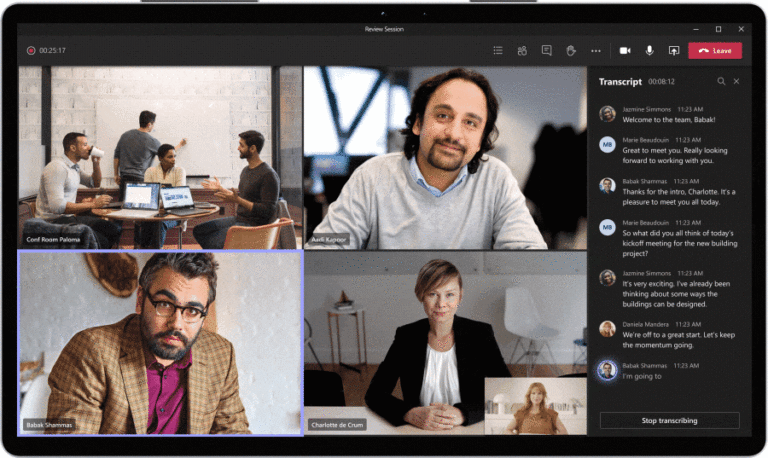AS SERVICE PROVIDERS, we face the continual challenge of differentiating from our competitors, especially as the products and services we provide reach a point of commoditization. Meeting this challenge requires us to observe, experience, acquire knowledge, and adapt so that we may survive, and hopefully thrive. Now the next pivot for MSPs is adding value to Microsoft 365 rather than just selling licenses.
MiradorIT has migrated nearly all our existing customers to Microsoft 365, and new prospects are often already there in some form or fashion, so it is becoming another commodity. More and more service providers are signed up as CSPs and include Microsoft 365 licenses in their packages, and tech-savvy employees at some prospects have already migrated themselves and are performing basic administration of their own 365 tenant.
 To add value for our customers and opportunity for our business model, we need to embrace Microsoft’s vision for the modern workplace and the all-in-one package that enables that vision. The Microsoft 365 platform has the potential power to enable businesses and employees to work and collaborate from any location, on any device, while maintaining the safety and security of users, data, and devices. In short, Microsoft 365 is a business operating system.
To add value for our customers and opportunity for our business model, we need to embrace Microsoft’s vision for the modern workplace and the all-in-one package that enables that vision. The Microsoft 365 platform has the potential power to enable businesses and employees to work and collaborate from any location, on any device, while maintaining the safety and security of users, data, and devices. In short, Microsoft 365 is a business operating system.
Adopt Principles of the Modern Workplace
So how do we execute on the opportunity that is Microsoft 365? Start by adopting the principles of the modern workplace into your company culture and choose areas to develop subject matter expertise.
For MiradorIT, the first step was embracing the principles in our mission statement. At regular staff meetings I advise, and continuously reinforce, the idea that we need to fully immerse ourselves in Microsoft 365–we need to eat, breathe, and sleep it. We need to proactively learn how to use it, implement it for our own purposes, and be able to explain and demonstrate the possibilities with clients and prospects. We need to generate excitement among customers and prospects that will lead to opportunities.
The next step is developing the expertise. We all know what a behemoth Microsoft 365 is; mastering and conquering even parts of it is intimidating. However, as with any complicated project, break the platform down into bite-size chunks, and choose specific focus areas in which to develop expertise. MiradorIT, for example, is focusing on:
- Management and Security
- Functionality and Productivity
- Workflow Automation
Keep in mind that you don’t need to become an SME in the entire Microsoft 365 platform. Start small, pick easy wins, and move up from there. And don’t hesitate to partner with like-minded providers that can help fill gaps in your own abilities. MiradorIT engaged with fellow service provider Noverus Innovations, based in Roseville, Calif., to gain expertise in the types of Microsoft 365-based solutions customers can benefit from.
Management and Security
Management and security of users, data, and devices have always been important functions, and they’ve been our bread and butter for the better part of the last three decades. But now the tools Microsoft has placed at our fingertips vastly improve our abilities to control how an organization’s devices are used, including desktop PCs, laptops, mobile phones, and tablets—regardless of who owns them. This is far different from our days managing Small Business Server. We are no longer dependent on on-prem Active Directory with Group Policies to configure and manage Windows-only devices, and third-party systems to manage mobile and non-Windows devices. Even when employees are using personal devices, we can still protect an organization’s data by isolating corporate data from personal data.
For this focus area, look to develop expertise in Microsoft Endpoint Manager, including Microsoft Intune, Configuration Manager, Desktop Analytics, and Windows Autopilot.
Give a serious look at Microsoft 365 Defender too—this is not your grandmother’s anti-virus! Microsoft 365 Defender has evolved into a unified pre- and post-breach enterprise defense suite that coordinates detection, prevention, investigation, and response across endpoints, identities, email, and applications to provide integrated protection against sophisticated attacks. Four components currently make up the suite:
- Microsoft Defender for Endpoint
- Microsoft Defender for Office 365
- Microsoft Defender for Identity
- Microsoft Cloud App Security
Defender for Endpoint and Defender for Office 365 are similar to tools we all currently use to deliver protection services to clients and should be easy to learn and deploy.
More advanced capabilities around compliance management, including tools to evaluate, mitigate, and monitor risks such as information protection, eDiscovery, auditing, and alert policies, are available (with appropriate licensing) in Compliance Manager.
Functionality and Productivity
We focus conversations about Microsoft 365 on the value customers get for their subscription fees. Historically, that was email, cloud-based file storage, and Microsoft Office. However, we all know the platform is so much more. Understanding the full Microsoft 365 ecosystem is such a huge challenge that at the end of 365 migration projects, I often feel as though we’re just pointing end users to their big box of “”stuff”” and saying, “”There’s all your 365 toys!”” It’s like giving 30 birthday presents to a 2-year-old child.
However, I don’t know that many users are discovering, learning, and using their box of toys, and for that reason I see a lot of opportunity for service providers to add significant value by helping them discover and learn about the apps that can be used to facilitate their daily routines.
This might include guiding customers through setting up and establishing practices for using Microsoft Teams and SharePoint effectively or looking at activities and workflows to determine whether there are use cases for apps such as Forms, Lists (pictured above), Planner, or Bookings (to name a few). And don’t overlook Microsoft 365 Business Voice. I think we as service providers give away a lot of one-time and recurring revenue to voice vendors that have no loyalty to us. We have avoided adding a specific VoIP solution to our wheelhouse for years, but I assure you that is changing with Business Voice.
Workflow Automation
To me, the treasure chest among all the capabilities of Microsoft 365 is the Microsoft Power Platform, consisting of:
- Power Apps
- Power Automate
- Power Virtual Agents
- Power BI
These tools can be used to automate routine tasks and build end-to-end business solutions that connect to data from SharePoint, Excel, SQL, third-party websites, and more. The Power Platform is a low-code environment, enabling even nontechnical users to build custom apps in less than a day. This is how we take our IT services from an overhead expense to improving business outcomes for our customers.
Learn More
Want to start learning more about Microsoft 365? Head over to Microsoft’s documentation site at https://docs.microsoft.com/en-us/documentation/, and of course check out the vast array of great content available on YouTube. Also, talk to your peers—find out what they’re doing and how. But most of all, talk to your customers, get them interested, and capitalize on the opportunities. I believe embracing Microsoft 365 is the key to the future for many service providers.
 SCHYLER JONES is founder and principal of MiradorIT, a managed service provider in Concord, N.H. He is an experienced IT consultant with an extensive technology background spanning nearly 30 years.
SCHYLER JONES is founder and principal of MiradorIT, a managed service provider in Concord, N.H. He is an experienced IT consultant with an extensive technology background spanning nearly 30 years.
Images courtesy of Microsoft














